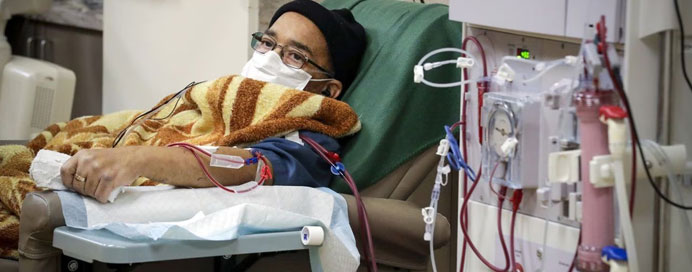Critical Care Nephrology (ICU Related Kidney Disorders)
Home / Dr. Rahul Deshpande
Our Services
- Rise In Creatinine
- Blood In Urine
- Acute Kidney Injury
- Glomerulonephritis
- Urinary Tract Infection
- Acid Base Disorder
- Fluids & Electrolyte Disorders
- Prostate Related Problems
- Leakage Of Protein In Urine ( Nephrotic/Nephritic Syndrome)
- Rapidly Progressive Renal Failure
- High Blood Pressure (Hypertension) & Its Related Kidney Complications
- Diabetes & It's Related Kidney Complications
- Chronic Kidney Injury & Its Complications
- Kidney Dialysis Therapy (Hemodialysis And Peritoneal Dialysis)
- Kidney Stone & It’s Medical Management
- Kidney Transplant & It’s Complications
- Interventional Nephrology - Renal Biopsy - Dialysis Catheter (Temporary & Tunnelled Catheters)
- Critical Care Nephrology (ICU Related Kidney Disorders)
- Onconephrology (Cancer Related Kidney Disorders)
Critical Care Nephrology (ICU Related Kidney Disorders)

Ah, the intensive care unit (ICU), where the stakes are high and every organ is under the microscope, including our resilient kidneys. Critical care nephrology dives into the kidney issues that can arise in these high-pressure situations.
Acute Kidney Injury (AKI) is a frequent guest in the ICU. It’s like a sudden kidney ninja attack, often caused by things like severe infections, low blood flow, or toxic exposures. Monitoring urine output and blood markers is crucial to catch AKI early.
Ever heard of nephrotoxic drugs? These are medications that can harm the kidneys. In the ICU, where drugs flow like a river, keeping an eye on which ones might be causing kidney trouble is essential.
Sepsis, the body’s extreme response to an infection, can also lead to kidney complications. The kidneys might not get enough blood flow during sepsis, leading to AKI.
Then there’s continuous renal replacement therapy (CRRT). Think of it as a kidney spa in the ICU. When the kidneys need a break, CRRT steps in to filter out waste and excess fluids.
Balancing fluids is an art form in critical care nephrology. Too much fluid, and the patient can develop pulmonary edema; too little, and the kidneys may suffer.
